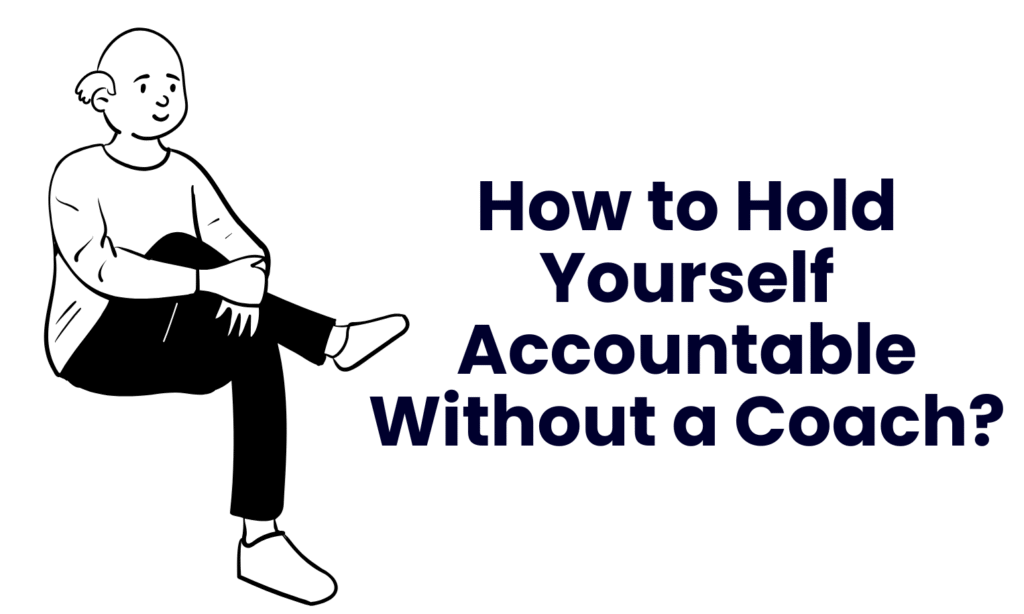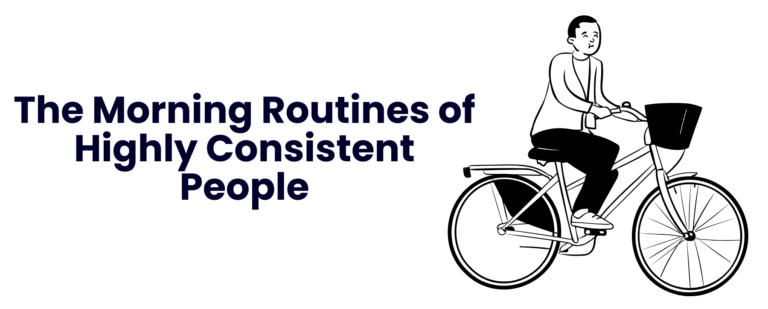How to Hold Yourself Accountable Without a Coach
You don’t need a coach to stay accountable. In fact, learning how to hold yourself accountable without outside help might be the most valuable skill you can build.

Many people rely on trainers, mentors, or partners for motivation. But external accountability is temporary. Self-accountability lasts longer and creates sustainable change.
Whether you cannot afford a coach or simply want more independence, these strategies will help you stay accountable to your goals and follow through with consistency.
Why Being Accountable Matters More Than Coaching
A coach can guide you. However, if you depend only on someone else to keep you accountable, you risk building reliance instead of resilience.
When you learn to be accountable for yourself, you develop:
-
Internal motivation that does not vanish when support disappears
-
Self-trust built by keeping promises to yourself
-
Resilience to recover from setbacks on your own
-
Sustainable habits because your accountability system goes wherever you go
Step 1: Know Yourself to Stay Accountable
Identify What Motivates You
Before setting up systems, ask yourself: What drives me? Understanding your style makes it easier to stay accountable.
-
The Competitor: Loves beating personal records.
-
The People-Pleaser: Hates letting others down.
-
The Reward-Seeker: Needs a prize at the finish line.
-
The Consequence-Avoider: Works hard to avoid negative outcomes.
Most people are a mix, but one style usually dominates.
Recognize What Stops You from Staying Accountable
Common traps include:
-
The Excuse Factory: “Just this once” turns into weeks of neglect.
-
The Perfectionist Trap: Quitting after a single mistake.
-
The Flying Blind Problem: Tracking nothing, so progress is unclear.
-
The Ostrich Approach: Avoiding self-checks because you fear the results.
Acknowledging these patterns makes you more accountable. Once you spot them, you can prevent them from derailing your progress.
Step 2: Build a Personal Accountability System
The Three Pillars of Staying Accountable
-
Clear Commitments – Write specific goals with deadlines.
-
Simple Tracking – Use apps, calendars, or habit journals.
-
Weekly Reviews – Reflect every week on wins and challenges.
Create a Personal Accountability Dashboard
Keep it simple:
-
Daily Trackers: Yes/no checkboxes for habits
-
Weekly Metrics: Numbers that show progress
-
Monthly Reviews: A wider look at what’s working
The simpler the system, the more likely you’ll stay accountable. Research shows self-accountability improves long-term goal achievement (American Psychological Association).
Step 3: Use Rewards and Consequences to Stay Accountable
Meaningful Consequences
The best consequences connect directly to your goal. For example:
-
Missed a workout? Add another session.
-
Didn’t study? Restart your streak.
-
Skipped business tasks? Work an extra weekend.
Reward Systems That Motivate
-
Daily: Coffee upgrade or guilt-free screen time
-
Weekly: Dinner out or a new book
-
Monthly: A bigger purchase or fun activity
-
Milestones: A special treat for big wins
To be truly accountable, make rewards and consequences hard to ignore.
Step 4: Build External Accountability Without a Coach
Public Accountability
Share your goals openly:
-
Social media updates
-
Blog posts or videos
-
Family or friend check-ins
-
Online communities
Accountability Partners and Groups
An accountability partner can check in weekly and share progress. Groups on Reddit, Facebook, or Discord also help you stay accountable by creating social pressure. Tracking habits daily boosts follow-through by 42% (Dominican University study)
The Buddy System
Pair with someone who has different goals. You’re not competing, just supporting each other daily.
Step 5: Stay Accountable Through Self-Assessment
Ask yourself weekly:
-
What did I plan?
-
What did I achieve?
-
What obstacles came up?
-
What can I change?
The Traffic Light System
-
Green: On track
-
Yellow: Mixed results
-
Red: Struggling, need new strategies
This quick check keeps you accountable and focused.
Step 6: Shape Your Environment to Stay Accountable
Physical Environment
-
Place workout clothes where you see them
-
Keep healthy food visible
-
Remove distractions from your workspace
Digital Environment
-
Use reminders for daily habits
-
Set app blockers during work
-
Block calendar time for goals
Small shifts in your environment make it easier to stay accountable without relying on willpower.
Common Mistakes That Break Accountability
-
Perfectionism – Expecting flawless results instead of steady progress
-
Isolation – Trying to do everything in secret
-
Complex Systems – Building routines too hard to maintain
-
All-or-Nothing Thinking – Giving up after one slip
Instead, focus on progress, not perfection.
Final Thoughts: Becoming Truly Accountable
Accountability without a coach is possible. It starts with knowing yourself, creating systems, and using both rewards and reviews.
Most importantly, being accountable means keeping promises to yourself. Over time, this builds confidence and consistency that no coach can give you.






